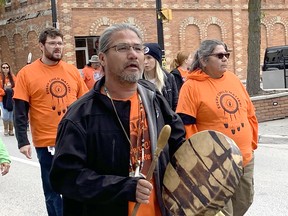Unveiling Significance: Education and Culture

Education and culture are threads that intricately weave the fabric of society, representing not only the accumulation of knowledge but also the essence of human existence. The importance of education and culture transcends mere academic learning; it embodies the collective wisdom and heritage of civilizations.
Table of Contents
ToggleEducation as the Beacon
Education stands tall as the beacon guiding humanity towards enlightenment. It’s not just the assimilation of facts and theories; it’s the journey towards intellectual evolution. It equips individuals with the tools to comprehend the world around them, fostering critical thinking and problem-solving skills.
Cultural Tapestry
On the other hand, culture represents the colorful tapestry of human existence. It’s the amalgamation of traditions, beliefs, arts, and values that shape societal norms and identities. Culture isn’t stagnant; it’s a living, breathing entity that evolves and adapts over time.
Education and culture are intertwined, each influencing and enriching the other. Education acts as a vessel carrying the wisdom of cultures, ensuring that heritage and knowledge are preserved and passed on to future generations.
Preservation of Identity
One of the profound aspects of the importance of education and culture is the preservation of identity. Education serves as a medium to perpetuate cultural heritage, ensuring that languages, traditions, and customs remain alive and relevant.
Diverse Perspectives
Moreover, education broadens horizons, exposing individuals to diverse cultural perspectives. It fosters understanding, respect, and appreciation for various cultures, nurturing global citizens who celebrate diversity rather than fear differences.
Values and Ethical Foundations
Education is not solely about academic prowess; it instills values and ethical foundations deeply rooted in cultural ideals. It shapes individuals not just intellectually but morally, shaping their attitudes and behaviors towards a more inclusive society.
Empowerment and Social Transformation
The nexus between education and culture empowers communities. Education rooted in cultural contexts provides tools for social transformation, combating societal disparities and promoting inclusivity.
Innovation and Creativity
Culture serves as a fertile ground for innovation and creativity. Education that encourages cultural exploration stimulates creativity, fueling innovation across various domains.
Bridge to the Future
These two pillars act as a bridge to the future. Education shapes future leaders, thinkers, and innovators while culture provides the moral compass and collective memory that steers society forward.
Challenges and Adaptation
However, there are challenges. In an era of globalization, preserving cultural heritage amidst homogenizing influences can be arduous. Yet, education plays a pivotal role here, advocating for the importance of preserving cultural identities while embracing change.
Digital Era’s Impact
In the digital age, education and culture face new dynamics. The digital realm offers opportunities to disseminate and preserve cultural knowledge, making it accessible globally. However, it also brings challenges in navigating cultural authenticity amidst the deluge of information.
Bridging Gaps
Educational institutions, museums, and cultural organizations are pivotal in bridging the gap between education and culture. Collaborative efforts facilitate learning experiences that intertwine academic knowledge with cultural richness.
Impact on Well-being
Both education and culture significantly impact individual well-being. Studies show that exposure to cultural activities enhances mental health, while quality education correlates with economic empowerment and societal progress.
The importance of education and culture isn’t just a scholarly discourse; it’s a cornerstone of civilization. It shapes societies, empowers individuals, and fosters a collective consciousness that resonates across generations, enriching the human experience in profound ways.




